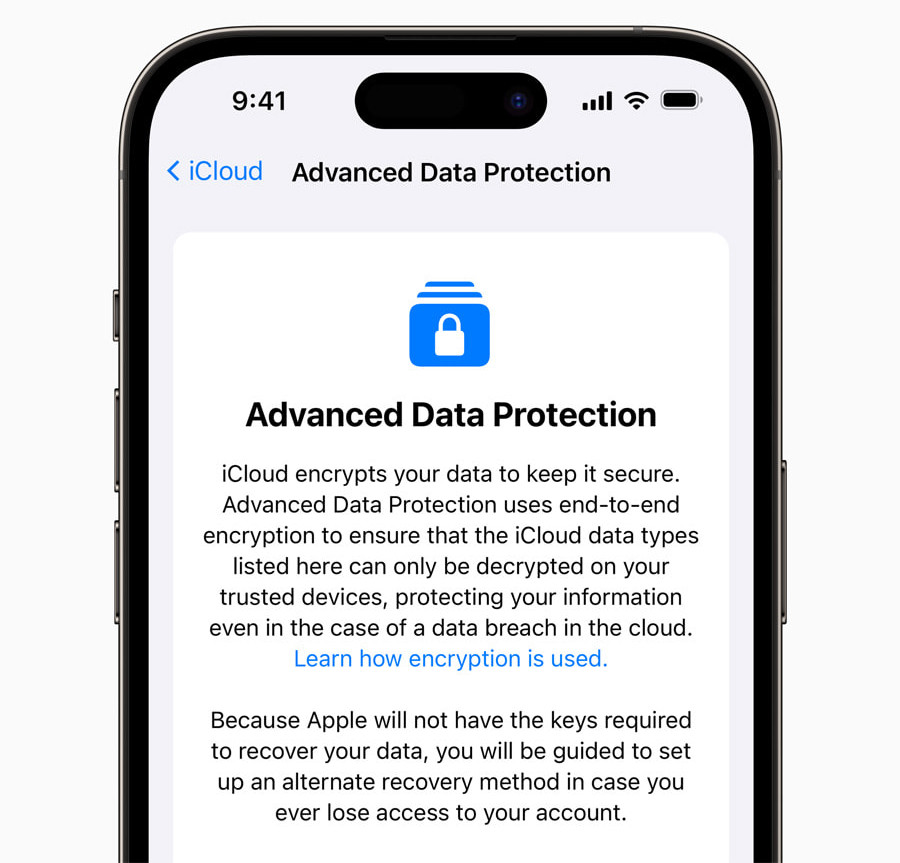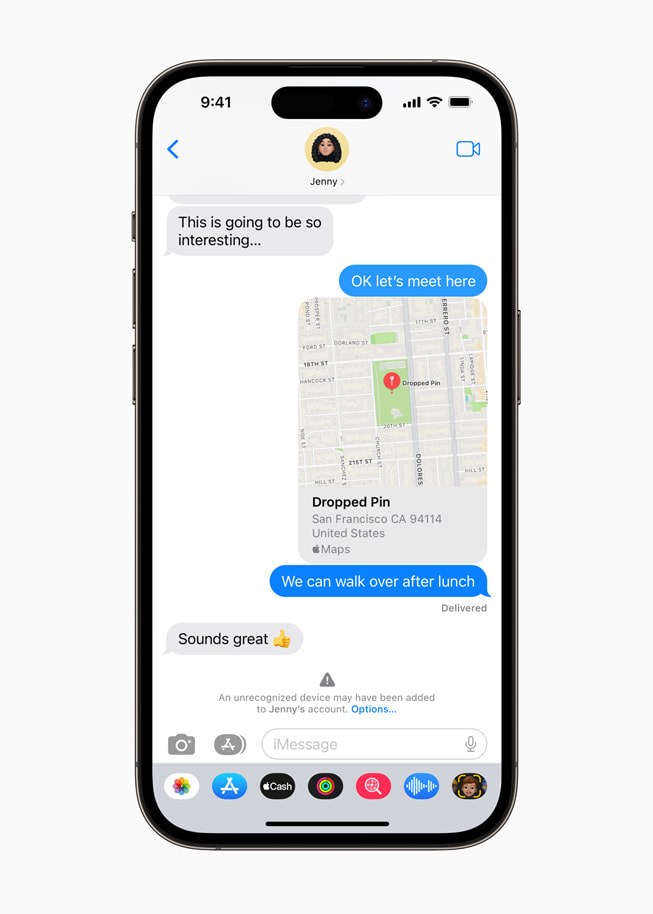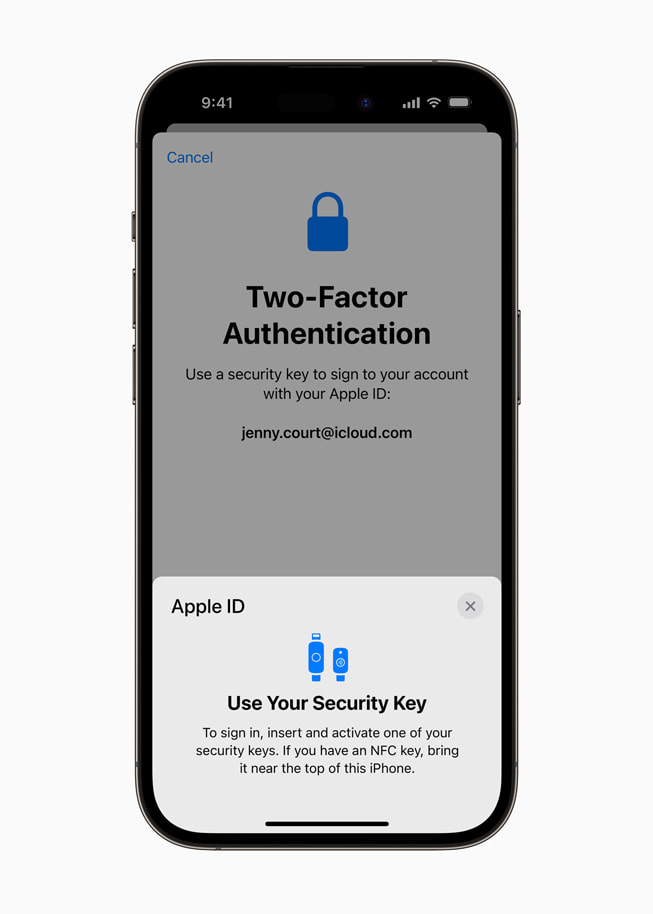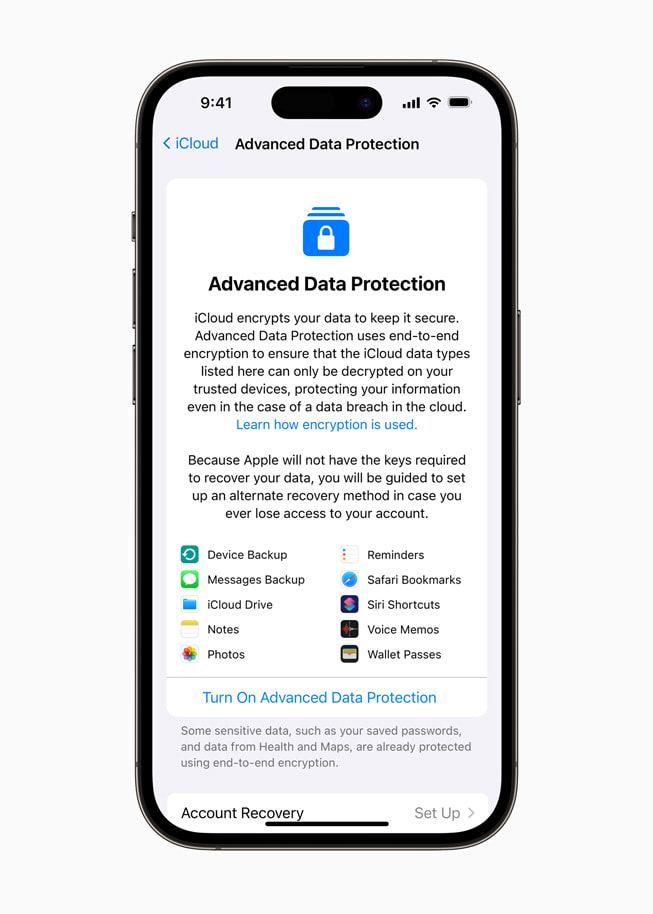
Apple today announced three additional security features aimed at securing user data in the cloud, marking the next stage in the company’s continuous endeavor to give users even stronger solutions to protect their data. Earlier, Apple expanded its self-service repair programme to Europe.
Users can utilize iMessage Contact Key Verification to ensure they are connecting only with the people they want to. With Security Keys for Apple ID, users can require a physical security key to sign in to their Apple ID account.
Users can also protect important iCloud data like iCloud Backup, Photos, Notes, and more with Advanced Data Protection for iCloud. This feature uses end-to-end encryption to give Apple’s highest level of cloud data security.
iMessage Contact Key Verification
With iMessage Contact Key Verification, individuals who face digital risks, including journalists, human rights activists, and government officials, may ensure they are messaging solely with the intended recipients. “The vast majority of users will never be targeted by highly sophisticated cyberattacks,” according to the company, but this function assists those who are.

iMessage Contact Key Verification warns consumers if an advanced adversary, such as a state-sponsored attacker, breaches cloud infrastructure to eavesdrop on encrypted conversations. Users of iMessage Contact Key Verification can compare a Contact Verification Code in person, on FaceTime, or through another secure connection.
Security Keys for Apple ID
Security Keys now allow users to use third-party hardware security keys. This tool is for public figures who suffer threats to their online accounts, such as celebrities, journalists, and politicians.

Security keys strengthen Apple’s two-factor authentication by requiring a hardware security key. This enhances our two-factor authentication, preventing even an advanced attacker from phishing a user’s second factor.
Advanced Data Protection for iCloud
Advanced Data Protection is Apple’s highest level of cloud data protection, allowing customers to encrypt most of their sensitive iCloud data on their trusted devices. Advanced Data Protection protects most iCloud data in the event of a cloud data breach for opt-in customers.

- iCloud automatically encrypts 14 types of sensitive data, including iCloud Keychain passwords and health data.
- Enabling advanced data protection protects 23 categories of data, including iCloud backup, notes, and photos.
- Mail, Contacts, and Calendar from iCloud are not included because they need to work with systems all over the world.
Enhanced protection for cloud users’ data is needed more than ever, according to a new research summary, “The Rising Threat to Consumer Data in the Cloud.” The number of data breaches increased between 2013 and 2021, exposing 1.1 billion records worldwide in 2021. Companies in the tech industry are tackling this problem by deploying end-to-end encryption.
Availability
iMessage Contact Key Verification will be available globally in 2023, while the Security Keys for Apple ID will be rolled out in early 2023. Advanced Data Protection for iCloud is available today for Apple Beta Software Program participants, and by year’s end for all US users and early in 2023, the feature will go global.
Speaking on the announcement, Craig Federighi, Apple’s senior vice president of Software Engineering, said:
At Apple, we are unwavering in our commitment to provide our users with the best data security in the world. We constantly identify and mitigate emerging threats to their personal data on device and in the cloud.
Our security teams work tirelessly to keep users’ data safe, and with iMessage Contact Key Verification, Security Keys, and Advanced Data Protection for iCloud, users will have three powerful new tools to further protect their most sensitive data and communications.
